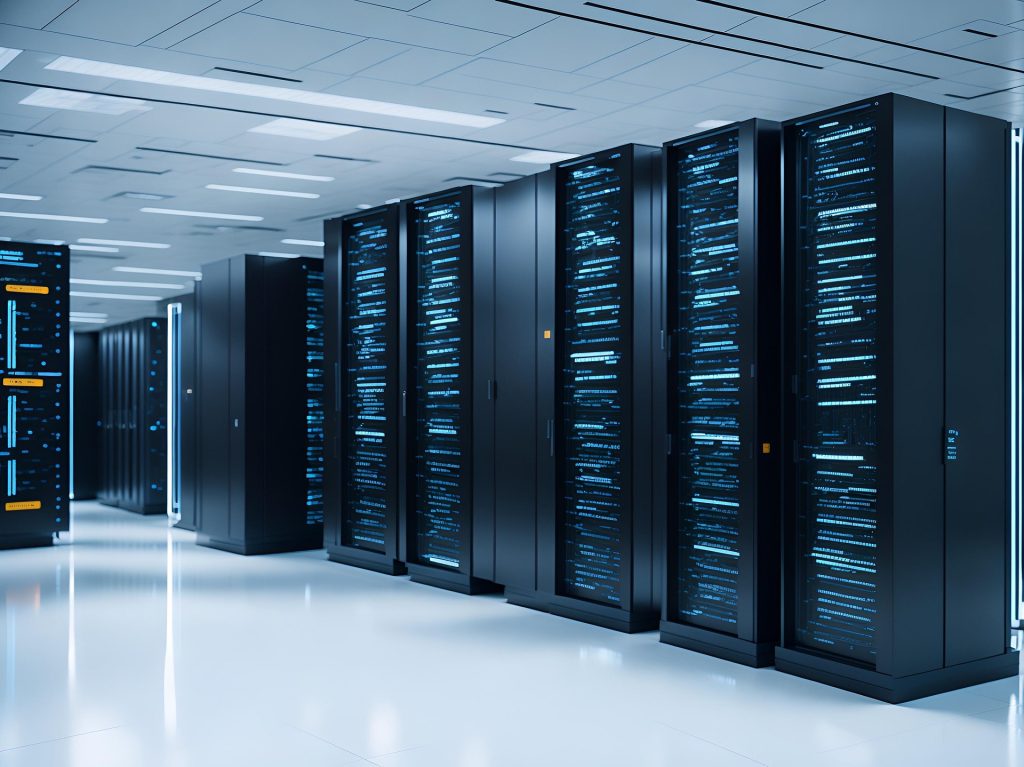
Powering Industries for 50+ Years
Diesel vs. Natural Gas Generators for Data Centers
Generator Sales, Service, & Rentals
Choosing the right fuel type for your data center’s backup power system is one of the most critical infrastructure decisions you’ll make. In an era where the power demands of AI, machine learning, and hyperscale cloud computing are growing exponentially, this choice impacts not just reliability and footprint, but the long-term financial and environmental viability of your facility. The two primary contenders, diesel and natural gas, each present a distinct set of trade-offs.
While diesel has long been the industry standard for its raw power and unmatched reliability, natural gas offers compelling advantages in emissions and fuel logistics. At Generator Source, our experience designing and deploying mission-critical power systems has shown that the “best” choice is not universal; it depends entirely on your facility’s specific needs, location, risk tolerance, and operational priorities.
This guide provides a detailed, head-to-head comparison, moving beyond the surface-level specs to analyze the total cost of ownership and operational realities of each fuel type.
| Feature | Diesel Generators | Natural Gas Generators |
|---|---|---|
| Reliability | Industry gold standard. Fast startup, proven performance under load, and complete fuel autonomy. | Highly reliable, but dependent on the integrity of the external utility gas pipeline. |
| Power Density | Higher. More kilowatts per square foot, ideal for space-constrained sites. | Lower. Requires a larger engine and footprint for the same kW output. |
| Fuel Storage | On-site tanks provide total, verifiable autonomy from utilities. Requires fuel management. | Relies on a continuous supply from an underground utility pipeline. No on-site storage needed. |
| Emissions | Higher in NOx, SOx, and particulate matter. Requires modern aftertreatment systems (DPF, SCR). | Significantly lower emissions, simplifying and accelerating air quality permits. |
| Capital Cost (CapEx) | Generally lower initial equipment cost. | Higher initial equipment cost for the genset itself. |
| Operating Cost (OpEx) | Higher fuel costs and more intensive maintenance (e.g., aftertreatment systems). | Lower fuel costs and typically less complex maintenance requirements. |
| Best For… | Mission-critical Tier III/IV facilities requiring maximum uptime and complete fuel autonomy. | Facilities with strict emissions limits, ESG mandates, or those prioritizing lower long-term OpEx. |
VIEW DIESEL UNITS | VIEW NATURAL GAS UNITS |
Reliability and Uptime
Diesel Generators
Diesel generators are the undisputed champions of emergency power reliability. They store their fuel on-site, making them a self-contained island of power, completely independent of external utilities during a grid failure. This is critical because widespread outages caused by storms or grid instability are often when gas pipelines can also be at risk. Their ability to start and accept a full load in under 10 seconds is a key requirement for NFPA 110 and mission-critical applications. The primary responsibility for reliability falls on the facility’s maintenance of the on-site fuel supply, including regular fuel polishing to prevent contamination.
Natural Gas Generators
While modern natural gas generators are extremely reliable pieces of machinery, their system reliability is tied to an inherent dependency: the utility gas line. In the event of a widespread natural disaster like an earthquake, hurricane, or even a regional pipeline failure, this external dependency could be compromised, cutting off your fuel supply. This single point of failure is often an unacceptable risk for Tier III and Tier IV data centers that require complete fault tolerance and concurrent maintainability.
Power Density and Footprint
Diesel Generators
Diesel fuel contains more energy by volume (BTUs) than natural gas. This means a diesel engine can produce more power from a smaller displacement, resulting in a smaller, more power-dense generator set. A 2000kW diesel generator will have a significantly smaller physical footprint than its natural gas counterpart, allowing for more “white space” for servers or more compact infrastructure planning.
Natural Gas Generators
To produce the same power output, natural gas engines need to be larger and heavier. This larger footprint can be a major challenge on space-constrained sites, potentially requiring more land, a larger and more expensive generator enclosure, or more complex ventilation systems.
Fuel Storage and Autonomy
Diesel Generators
With on-site fuel tanks, you have complete and verifiable control over your runtime. Most data centers maintain a 24 to 96-hour supply of diesel fuel, guaranteeing autonomy during extended outages. This allows for precise planning around refueling logistics and contracts, giving the operator full control over their emergency preparedness.
Natural Gas Generators
The advantage here is a theoretically unlimited fuel supply, as long as the pipeline is intact. This eliminates the need for large, expensive on-site fuel tanks, fuel maintenance, and complex refueling contracts. However, as mentioned, this convenience comes at the cost of handing over a critical piece of your infrastructure’s reliability to an external utility.
Emissions and Permitting
Diesel Generators
Modern Tier 4 Final diesel engines have advanced aftertreatment systems, like Diesel Particulate Filters (DPF) and Selective Catalytic Reduction (SCR), that dramatically reduce emissions. However, they still produce more NOx and particulate matter than natural gas units. This can make the air quality permitting process in non-attainment zones more complex, costly, and time-consuming.
Natural Gas Generators
This is the clear winner for environmental performance. Natural gas is a cleaner-burning fuel, producing significantly lower levels of NOx, SOx, and particulate matter. This can drastically simplify and accelerate the environmental permitting process, a major advantage in regions with strict air quality standards like California or the Northeast.
Total Cost of Ownership (TCO)
Capital Expenditure
Diesel generator sets typically have a lower upfront purchase price. However, the total CapEx must also include the cost of a large, double-walled fuel tank, fuel polishing systems, and the associated installation, which can narrow the initial cost gap.
Operational Expenditure
Natural gas is almost always a cheaper fuel per BTU than diesel, leading to significant savings during routine testing and any actual outages. Furthermore, maintenance on a natural gas generator is often less intensive, as it lacks the complex aftertreatment systems of a Tier 4F diesel engine, which require consumables like Diesel Exhaust Fluid (DEF) and periodic servicing. Over the 15-20 year lifespan of the equipment, a natural gas generator will almost always have a lower total operating cost.
Which Fuel Type is Right for Your Data Center?
The choice between diesel and natural gas is a strategic one based on a clear trade-off between absolute reliability and operational efficiency. There is no one-size-fits-all answer, but a clear decision emerges when you define your primary objective.
You should choose a DIESEL generator if:
- Your facility is Tier III or Tier IV and cannot tolerate any external utility dependencies for its emergency power system.
- Your site has a limited footprint, and maximizing power density is a top priority.
- Your primary goal is the absolute highest level of emergency power reliability and verifiable on-site fuel autonomy.
You should choose a NATURAL GAS generator if:
- Your facility is in a region with very strict air quality regulations, and simplifying environmental permitting is a major goal.
- Your priority is minimizing long-term operational costs (OpEx) and meeting corporate ESG mandates.
- Your risk assessment determines that a utility gas line interruption is an acceptable, low-probability event for your specific location and business model.
Let Our Experts Help You Decide
This decision has long-term consequences for your data center’s reliability and profitability. The team at Generator Source has decades of experience designing power solutions for mission-critical facilities. We can help you analyze your site’s unique needs and run a detailed TCO analysis to determine the perfect fuel type and generator for your project.
Contact us today for a no-obligation consultation.
Generator Source specializes in low-hour, used, new, and surplus generator sets. We have a wide variety of generator sizes and models to fit any project. We are not a broker, we own what we sell. Call us today (877-866-6895) or click Contact Us to be connected with one of our experienced sales reps. We have 350+ generators in stock and ready to ship!
